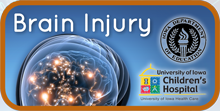Course Summary
There are three sections in this course
- Section 1:Executive Functions
- Section 2:Behavior
- Section 3:Emotional and Social Language
There are review questions at the end of each section. These review questions will provide you with an opportunity to apply the knowledge and skills presented in these sections.
Intended Audience
PK-12 teachers, school nurses, Area Education Agency staff, school psychologists, speech / language therapists, occupational therapists, para educators, school administrators, social workers, parents, and caregivers
Learning Objectives:
Section 1: Executive Functions
After completing this section, participants will be able to:
- Explainhow executive functions can affect learning
- Discussworking memory deficits and strategies that can be used in the classroom to overcome those deficits
- Discussother executive functions deficits (i.e. organization, sustaining attention, inhibition, task initiation, planning and setting goals, flexibility, and self-monitoring and awareness) and strategies to address them
Section 2: Behavior
After completing this section, participants will be able to:
- Listcommon behaviors after brain injury
- Discussthe problem behaviors that can arise from cognitive changes, physical states, and emotional states
- Explainthe focus on antecedents in the ABC Model Behavior
- Discussinterventions for coping with the behavior problems after brain injury
Section 3: Emotional and Social Language
After completing this section, participants will be able to:
- Discussemotional control, its deficits, and strategies for coping with emotional dyscontrol
- Discusssocial skills, their deficits, and strategies for coping with social deficits
- Discusslanguage deficits, and strategies to overcome receptive and expressive language deficits
Pre-requisites/Learning Level
No pre-requisites
Competencies addressed
Core Competencies for Public Health Professionals identified
Domain 1: Analytical/Assessment Skills
- 1A1. Describes factors affecting the health of a community (e.g., equity, income, education, environment)
- 1A12. Contributes to assessments of community health status and factors influencing health in a community (e.g., quality, availability, accessibility, and use of health services; access to affordable housing)
Domain 2: Policy Development/Program Planning Skills
- 2A6. Gathers information that can inform options for policies, programs, and services (e.g., secondhand smoking policies, data use policies, HR policies, immunization programs, food safety programs)
Domain 6: Public Health Sciences Skills
- 6A4. Retrieves evidence (e.g., research findings, case reports, community surveys) from print and electronic sources (e.g., PubMed, Journal of Public Health Management and Practice, Morbidity and Mortality Report, The World Health Report) to support decision making
CEUs Offered
None
Cost
Free
Modality/format
Online Self-Pace
Length
1 hour
Presenter(s) and/or Content Experts
Valerie Cool, PhD; Paige Burden, MA, CCC-SLP
Technical requirements:
- Adobe Acrobat Reader
- Flash Player
- Speakers
Registration requirements
Register a free account
Creation and/or update
March 22, 2012




